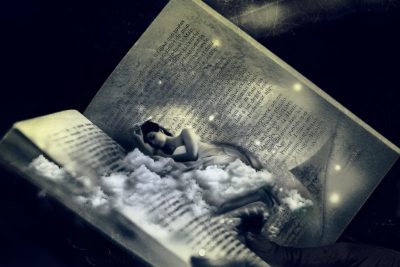
The first lesson we typically learn as writers is to write what we know—good advice. After all, we want the reader to step easily into the story, sensing its truth and authenticity.
But that idea can also stifle a writer. A woman I was coaching told me she would only be able to write about her divorce. “I really don’t want to re-live it,” she said, “but it’s all I feel qualified to write about.”
First-hand experience may be a good approach to putting together a story, but it’s certainly not the only approach. Otherwise, how do we account for Shelley’s Frankenstein and Herman Melville’s Moby Dick? How do we make sense of Oscar Wilde’s The Picture of Dorian Gray, Dickens’ A Christmas Carol, Tolkien’s The Hobbit or J. K.Rowling’s Harry Potter?
We can be pretty certain that Mary Shelley did not “know” anything about creating an eight-foot creature out of body parts. Melville never saw anyone ride a whale, and it is highly doubtful that Oscar Wilde knew of anyone who so completely defied the aging process.
Each of these writers took something—a world view, a moral or amoral ideology, some bits and pieces of life experience, big or small, a bit of mental whimsy—and by adding an ample dose of imagination and at least some degree of research, fashioned their classic masterpieces.
Mary Shelley had visited a gothic castle in Germany and had once heard of a man from an earlier century who used electro-stimulation to briefly enliven the muscles of the dead. Frances Hodgson Burnett, who wrote The Secret Garden, was a follower of Christian Science, which inspired her to create a story wherein positive thinking, kindness and gratefulness could lead to healing and happiness through Nature. In real life, there was no magical bird.
“What we know” is a wide-open concept whose interpretation is not limited to some literal knowledge or experience on a grand or exotic scale, such as in Born Free. It can start with the old neighborhood, an odd or beloved relative, something that happened at the supermarket one day, an ironic twist, an unexpected blessing, a shocking turn-of-events, none of which has to have actually happened. Make it up.
Undoubtedly, we know a lot more than what we think we know. We don’t have to create a War and Peace or a Ben Hur to write a compelling story. We’ve all seen things and felt things. On at least some level, we’ve all likely experienced love, disappointment, thrills, anger, loss, grief, discovery—on and on. It’s the list of things life is made of, the very things readers want to find in good storytelling. The rest we can learn because, after all, the world is full of things that we can know.
When I wrote “Jeremiah’s Orchard,” which appears in The Saturday Evening Post Anthology of Great American Fiction, I knew nothing about apple orchards, the setting that’s central to the story. I started with Google (“Google it up,” I always say).The information I found there helped me generate a list of questions to ask an apple expert. Since my story takes place somewhere in the northeast, I contacted the New York State Apple Association and found a grower who was kind enough to chat with me by phone. I had all I needed to speak with authority on the subject, at least for a short story. Clearly, a novel would have required much more research.
I have written more than twenty stories, none of which I have lived. Yet, there is at least a part of me in every one. It’s kind of like what Charles Schulz said about Peanuts: “In some way I am each of the characters.”
In my humble opinion, what we really need to know as writers are two little words: what if…. Then, we go do our research, as needed, and happily wrestle the thing into submission

Marie Pinschmidt
Excellent article and a timely one with today’s fingertip sources of information. I like to think of it as writing what we’d “like” to know. Best wishes.
Mary Flynn
Well said, Marie. Isn’t it true? It’s so easy to get at least a few snippets on a subject we know nothing about and begin to make it our own. I believe it adds such a sense of adventure to our writing. Thanks for the comment.
Elle Andrews Patt
Yes! Nice to see someone articulate that “what you know” should be “what you’ve discovered about living and research the rest”. Too many English teachers and writing instructors crush newbie writers’ ambitions and stall their ability to write with a literal interpretation of “write (only) what you know”. Thank you 🙂
Mary Flynn
Thanks, Elle. I guess, as writers, that was a lesson many of us had to un-learn. Thanks for chiming in.